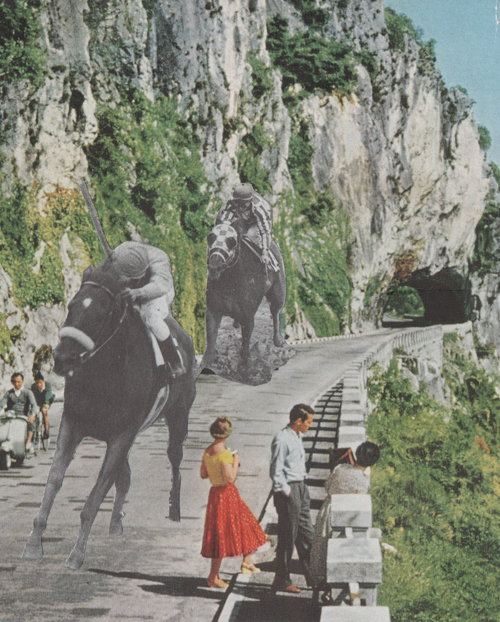We only lived in the little house for three years. I still slept in a crib and watched Sesame Street while my mother did calisthenics. I do not remember eating or sleeping there. I don’t remember what the yard looked like. I do not remember my father’s shape as he moved through the rooms, whether he yelled or swayed, but I remember turning my head to watch my mother, standing in the shape of a star. Her legs wide, she bent down to touch her right fingers to her left toes, then back up, then her left fingers to her right toes. And I remember turning back to Oscar the Grouch, and Grover, and Burt and Ernie. I don’t remember Charlie, but I remember her telling me about him, often.
Charlie was a rat, and he lived in the basement of the little house. My mother says he would scratch at the basement door whenever she was in the kitchen. She would open the door just a crack and drop a few pieces of dog food on the linoleum, she says. Charlie was our secret, because my father said absolutely no pets.
What I don’t know: Where did my mother get the dog food? And, when we ran away from my father, from his vodka-fueled rage and his gun—who fed Charlie after that?
DOMESTIC CAT
I told my mother what you did, and she said I can’t come over anymore. She said you’re running wild over here. She said you’re too much for your crazy mom to handle on her own.
I can still see Smoky, the tomato trellis stuck to the side of your house, your black rubber boot with the red trim at the top, his plastic flea collar, hooked. How he thrashed his head to the left and right, like a whip, trying to get free. How he froze after you kicked him. How he froze and never moved again, not even to go limp, like dead animals on TV do. And how you laughed at how dumb he was for not running away.
AMERICAN CROW
It was almost dusk. The softball field lights were not yet on. A few mosquitoes buzzed drunkenly around the summer stickiness in my armpits. There were some other kids around, which was good, because there weren’t always. And we had been playing with a crow. It had a pinkish crust on its head, and tipped forward with a crooked lilt when it walked. It didn’t fly away, even when we surrounded it. We named it, as it hopped around us, followed us across the grass next to the swings. Crowy. I was about to rest my palm on its back, like a saddle, when Gary came over.
He worked with my stepdad, and played on the softball team. Gary hollered, “Don’t touch that!” And I jumped backwards, as if the crow had become a snake. He said the bird was sick. He said it was suffering, not playing.
The crow hopped off of the picnic table. Gary said we needed to look away. Then he said to go find our mothers. I heard his aluminum bat slice through the air behind me, but I didn’t hear the impact—the grass and feathers must have been too soft. Or maybe I’ve forgotten the ugly music of it.
I laced my fingers behind my neck, thought about how hard they swung those bats on the field, and ran to find my mom.
She was sitting on the bleachers, smiling at some play, and the lights had just come on, illuminating a small circle of the park in bright, yellow light.
_
Chelsea Biondolillo’s prose has appeared or is forthcoming in Passages North, Guernica, Rappahannock Review, River Teeth, Shenandoah, and others. She has an MFA in creative writing and environmental studies from the University of Wyoming, and is the 2014-15 O’Connor fellow in nonfiction at Colgate University.


8 comments
Amy Holman says:
Sep 18, 2014
Very good, effective language about the violent gaps in memory, and the violence, anyway, and the active, sweet shelter of the mother.
Fred says:
Sep 18, 2014
What he did to that cat was criminal.
Thanks for the evocative piece, Chelsea. It made me shudder.
Chelsea Biondolillo says:
Sep 19, 2014
Thank you for the kind words, Amy & I agree, Fred–he only got worse as he got older.
Cora Schenberg says:
Nov 5, 2014
Chelsea,
This is beautiful, terrifying. You’ve made me mourn three creatures I never knew: Charlie, Cat and Crow. I’m constantly amazed at how people create beauty and art in the face of unspeakable horror.
Amanda Moonbeam says:
Dec 30, 2014
Reading this felt like a punch in the gut, raw & honest.
Kelly Sundberg's Eight Flash Nonfiction Writers - Vela says:
Mar 11, 2015
[…] interrogates her own need to stare at road kill. In another series of short pieces, “Necrologies: Mothers & Fathers,” she examines necrologies in all their forms, including the end of her parents’ relationship. […]
Rich Furman says:
Jul 9, 2017
Three powerfull essays, alone and together. Alone, the quiet images contrast with the violence of contested spaced between life and death. Together, they trigger mourning for lives unknown, and known.
Jignesh Prajapati says:
Apr 21, 2021
Great Post!!!
Thank you so much for sharing such an great piece of ideas with us. It is very unique and wonderful. Keep sharing.Packaging Design